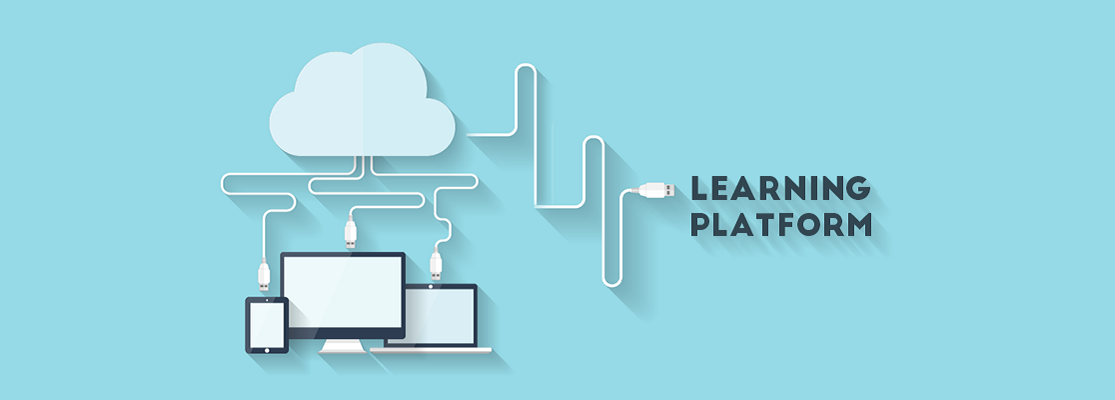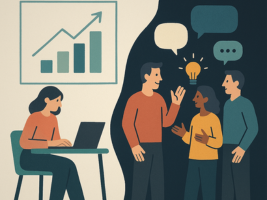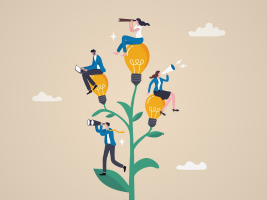EVERYBODY’S GOT SOMETHING TO TEACH…!!!
“Veritas Vos Liberabit! – The truth shall set you free!”
I clearly remember the first time I heard these words. My brother had just joined University and was saying the words written on the University emblem. I was in my 9th grade at the time and remember listening to him go on about his new college experiences and hanging on to each word. To me, it sounded like a magic spell. But then, I didn’t realize how much those three words from a dead language (Latin) would later influence everything I do.
Fast forward a decade and a half. Now I am an Instructional Designer (ID) and I have taken those three words in Latin as canon every day of my life. When I joined as an ID at Learnnovators, the first thing that one of my colleagues told me was that an ID must have a great passion for learning. I don’t know if I am learning as how she meant it, but I do end up learning something new every minute. Even when I am in no mood for it. Ok, I realize that last sentence must have you looking at the rest of this blog warily. But, bear with me. I shall explain.
To make this clear, let me talk about a lesson I learned in civics class at school: Every citizen has a voice and opinion in the matters of the country. My epiphany comes from a similar vein. To me, every person on this earth has something to say. Look at it objectively and it becomes “everybody has something they can teach me”. For example, I had an inadvertent conversation with a friend of a friend of a friend, a few days back. And during the course of the chat, I discovered a much more efficient way of using MS-Word. It may not be a big deal to most of you, but my livelihood depends on the keyboard and MS Word. It has made my work, and life, infinitely easier. It doesn’t matter whether it is useful or not, it is still information that I learned from a couple minutes of conversation. Similarly, go out for a walk. By the end of it, you will still be more enlightened than before the walk. It’s as simple a concept as that. We end up learning even when we are not consciously learning.
I am not talking about learning new skills or finding the universal truth (I am hoping for that too), but just our everyday activities will bring forth some interesting new tidbits. From mundane stuff, like a new recipe to popular life hacks, there are plenty of things to learn. Just start a dialog with somebody. Go visit another country and experience its people and culture. You will be surprised at how much your capacity for understanding and acceptance increases. I know that this is counter to the rules of Instructional Design, where the focus is on transferring a particular skill or knowledge. But, does it have to be? There are close to 7 billion people on Earth living their own lives and experiences with lessons to teach. If that resource is tapped properly, then I believe we will start seeing the next stage of evolution in learning.
“The Social Learning Theory, by Albert Bandura, posits that learning is a cognitive process that takes place in a social context and can occur purely through observation or direct instruction, even in the absence of motor reproduction or direct reinforcement”. Social learning as a concept has been around for a while, but in its implementation, is still in its infancy. Mediums like LinkedIn, Twitter and other social and enterprise networks have brought about big strides in this field but the best mode of social learning is still going out there and experiencing things first hand, or talking to someone.
Socrates states that humans are a social species. Thus, it is not hard to infer that we also learn the most by being social. So next time anybody asks you whether you learned anything new, be proud and say “YES”. You won’t be lying.
Written by Anil Narayan (Learning Designer at Learnnovators)
_________________________________
Published on 23-May-2016






